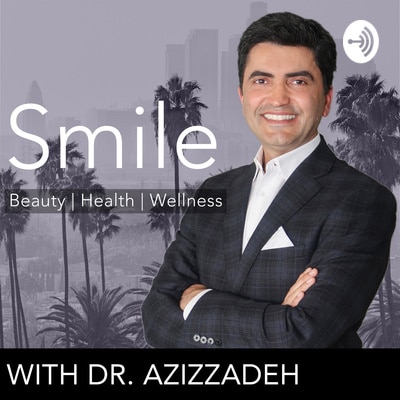The coronavirus (COVID-19) pandemic has changed the way plastic surgery is performed, and its effects on plastic surgeons and their patients will be felt long after the crisis ends. In this episode of the Smile podcast, globally recognized facial plastic and reconstructive Dr. Babak Azizzadeh and Dr. Jonathan Cabin, a board-certified head and neck surgeon with expertise in facial plastic and reconstructive surgery and parotid reconstruction, discuss COVID-19’s impact on the current state of plastic surgery. In addition, Dr. Azizzadeh and Dr. Cabin explore the potential impact of the coronavirus on plastic surgeons and their patients going forward.
How Has the Coronavirus Pandemic Affected Plastic Surgeons and Their Patients Thus Far?
The coronavirus pandemic has made it exceedingly difficult for plastic surgeons to perform facelifts, nose jobs, and other “non-essential” treatments. Many plastic surgeons have postponed or canceled cosmetic procedures, due to the severity of the pandemic. However, as COVID-19 restrictions have been lifted in cities and towns nationwide, plastic surgeons are embracing the “new normal” of the pandemic. These surgeons are gradually reopening their offices and taking measures to ensure patients can safely undergo treatment in the midst of the crisis.
Plastic surgeons continue to prioritize urgent procedures; these procedures are considered medically necessary for patients. For example, a medically necessary procedure may involve the removal of skin cancer from the neck or correction of a broken nose that otherwise hinders a patient’s ability to breathe. Regardless of which urgent procedure is performed, a plastic surgeon takes many precautions to guard against the spread of the coronavirus. The surgeon also ensures the patient is protected against COVID-19.
Along with prioritizing urgent procedures, plastic surgeons are taking additional measures to keep their offices clean during the pandemic. Since COVID-19 can be spread via respiratory droplets that come from coughing, sneezing, or other respiratory secretions, plastic surgeons are wearing masks and other protective equipment when they perform procedures. They may also require patients to get tested for COVID-19 before they undergo treatment. Plastic surgeons may dedicate substantial time, resources, and energy to deep-clean their offices after each procedure, too.
How Will the Coronavirus Pandemic Affect Plastic Surgeons and Their Patients in the Years to Come?
Plastic surgeons want to do everything they can to help patients feel comfortable, particularly if they require treatment during the pandemic. As such, they will continue to explore ways to ensure patients can safely receive treatment throughout the pandemic and after it ends.
The coronavirus pandemic may lead to an increase in non-surgical treatment for cosmetic issues as well. Botox, facial fillers, and other non-surgical cosmetic treatments do not require a patient to go under the knife. These minimally invasive procedures can also be performed quickly, and a patient has minimal contact with a plastic surgeon during their treatment. Thus, non-surgical cosmetic procedures may provide viable options for patients who want to enhance their facial appearance and limit risk as much as possible.
Expect the number of in-person plastic surgery consultations may dwindle due to the pandemic. Many plastic surgeons have been hosting remote consultations via Zoom with patients during the pandemic, and these consultations offer secure, easy-to-access alternatives to in-person meetings. Thus, virtual consultations may be beneficial for plastic surgeons and their patients alike.
Learn More About the Coronavirus and Plastic Surgery
Dr. Azizzadeh and Dr. Cabin discuss the coronavirus and plastic surgery in detail in episode five of the Smile podcast. To find out exactly what Dr. Azizzadeh and Dr. Cabin have to say about the coronavirus and plastic surgery, listen to the podcast now.
